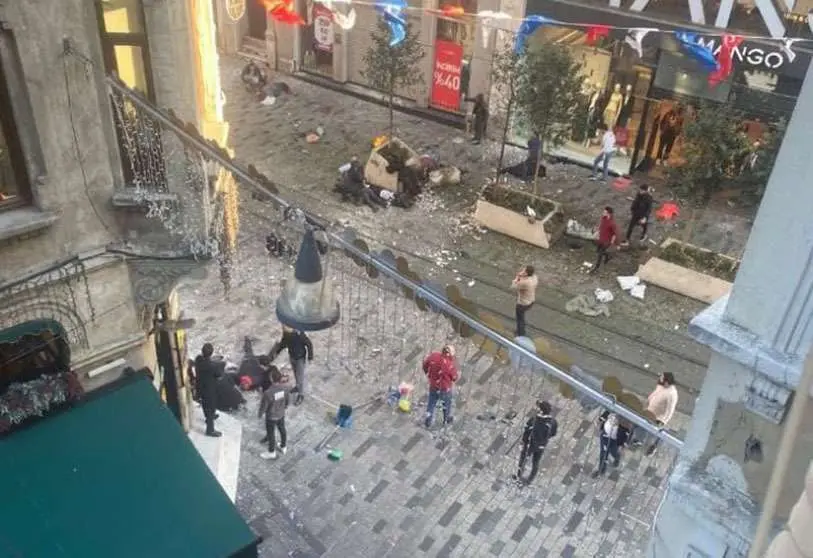Suspected attack rocks Istanbul

A powerful explosion rocked Istanbul on Sunday. An unidentified device exploded on the central Istiklal Avenue at around 16.20 local time (13.20 UTC), leaving at least six people dead and more than 50 injured, according to authorities. The death toll could rise in the coming hours.
It is an attack, Turkish President Recep Tayyip Erdoğan said in a televised speech before his departure for the G20 summit in Indonesia. Between 2015 and 2017, Turkey was the target of a series of terrorist attacks by members of Daesh and Kurdish groups. The same location was the site of a suicide bombing in 2016 that killed two US citizens.
?? — NEW FOOTAGE: CCTV video shows the moment of the explosion at Taksim square in Istanbul, Turkey. It seems the explosion was caused by a bag left on a bench. pic.twitter.com/EIW4oeNuhw
— Belaaz News (@TheBelaaz) November 13, 2022
Asked about the blast, Erdoğan acknowledged that it would perhaps be wrong "to say for sure that this is terrorism, but the first developments, what the governor conveyed to us, smells like it".
The Islamist leader threatened the culprits: "Let them be sure that the perpetrators of the incident on Istiklal Street will be punished as they deserve". "The key departments of our state continue their work to uncover the perpetrators of this treacherous attack and the conspiracies behind it," he added during his speech.
"Our security, health, fire and emergency teams have been dispatched to the scene. We have casualties and injured," Istanbul governor Ari Yerlikaya tweeted. Authorities have evacuated the adjoining streets and the avenue itself, known as Istanbul's Champs Elysees for its many shopping areas.
#BREAKING: Explosion reported at the Istanbul’s popular pedestrian Istiklal Avenue in Turkey. Initial reports say over 11 seriously injured. More details awaited. Ambulances and fire trucks on the scene. This is the video of the moment of explosion.
— Aditya Raj Kaul (@AdityaRajKaul) November 13, 2022
pic.twitter.com/WSkksjTXUj
Istiklal Avenue is one of the most popular streets in the busy Beyoğlu district, located in the European part of the city and separated from the old city by the Golden Horn. A large number of locals and tourists stroll through this area on a daily basis.
The Istanbul Public Prosecutor's Office has launched an investigation into the incident. Five prosecutors have launched investigations, according to the state-run Anadolu news agency. In addition, Turkey's media watchdog has banned the broadcasting and publication of images about the incident.
Social media has been restricted across the country following a decision by Turkey's Radio and Television High Council (RTUK) to regulate the broadcasting of photographs and videos of the alleged attack. This is not the first time the government has implemented such a measure.








